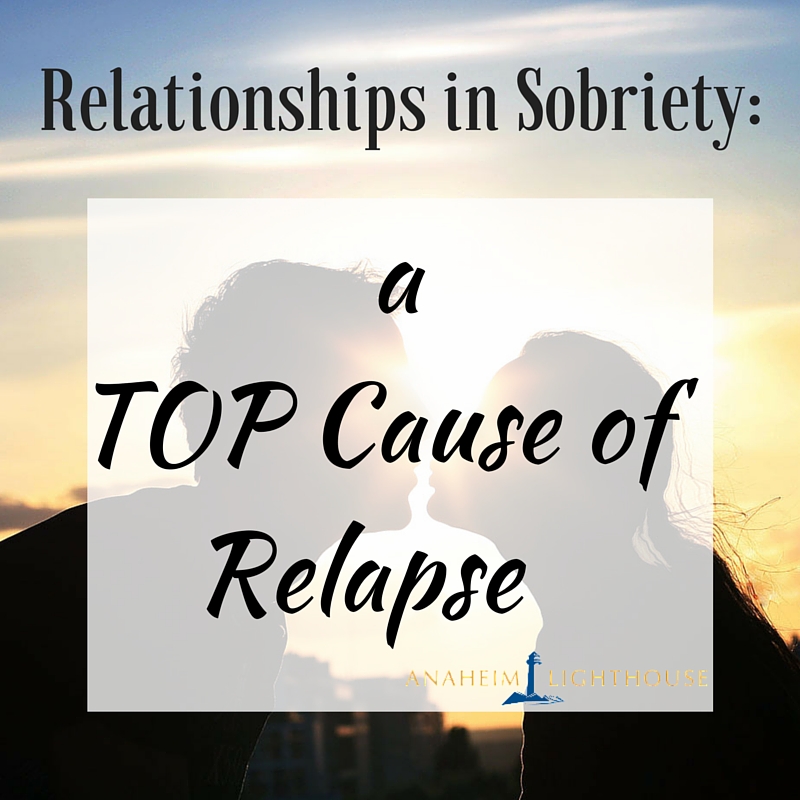Relationships in Sobriety: 1 of the TOP 3 Causes of Relapse
Written By Ivy Chase
Often times, early sobriety is full of change and difficulties. Life seems stressful just getting out of bed for someone who is newly sober; facing the world with raw emotions and no chemical buffer can seem like a defeat in itself. It's in times like these that a person is often vulnerable to the temptation of an outside distraction, also known as an early sobriety relationship. In these relationships, both partners are extremely dependent on one another for constant validation and attention. Insecurities and jealousy tend to run high, filling life up with unnecessary drama, thus not allowing either person to actually get anywhere in their recovery, or move forward in their life.
One of top reasons people tend to relapse in sobriety is due to not getting help with their dysfunctional relationship(s). Sober advisers say not to get into a relationship for at least the first YEAR of your sobriety, but is torture of the single life really so necessary that it be an entire year long?! Studies suggest that dysfunctional relationships are one of the top 3 causes of relapse for a recovering addict- maybe flying solo 12 months isn't the worst thing a person in early recovery could do to ensure they make it that far.
In co-ed meetings, the opposite sex may share some attractive qualities, drawing the newly recovering addict to them by speaking about similar values, top line behaviors, goals and other enjoyable changes occurring in their life. IT IS COMPLETELY NORMAL TO FEEL AN ATTRACTION TO WHAT THEY SHARE. This is where it becomes confusing. It's OK to like what is being said, and not have to become attached to someone by sleeping with them or dating them! The term "hear-here" has never been meant so absolutely.
Co-ed meetings may become threatening to one partner due to attendance from attractive members of the opposite sex, eventually leading to attending fewer and fewer meetings. Early sobriety relationships are a breeding ground for insecurities. These tend to pop up in every area of a recovering person's life regardless of their relationship status, however being emotionally dependent on someone with their own set of baggage only magnifies each issue making it worse.
Soon, the relationship is so dysfunctional and distracting, that it resembles a vacuum or even a prison. It sucks up all your energy and has walls surrounding it, not allowing any new healthy energy to get in. In the big book of Sex and Love Addicts Anonymous, they call this a "Closed Energy Relationship." And that's exactly what it is. Each partner begins to have less energy for independent activities, increasing their dependence on their partner and the relationship... and we all know that what you focus on only multiplies! In many ways, the relationship takes the place of the chemical dependency, thus the dysfunction.
During the first year of sobriety, the recovering addict usually takes the time and energy to focus on themselves, working on healthy boundaries, working the 12 steps, going to meetings, creating a balanced lifestyle. The wreckage of the past tends to die down as they work through amends and resentments with the guidance of a sponsor and other recovering peers. At some point a certain level of serenity can be achieved. It is at this time that cultivating a new, healthy, functioning relationship would be supported in sobriety.
With new found integrity and life balance, a recovering addict has a better chance of attracting an appropriate partner and succeeding in a happy and healthy relationship. Healthy relationships are possible with a solid foundation and the right tools. Support may be a necessary component as well. At Anaheim Lighthouse we will give you the tools you need in your sobriety to achieve lasting and healthy relationships in sobriety. If you or someone you know is struggling with addiction, call us today (877)949-5909.














